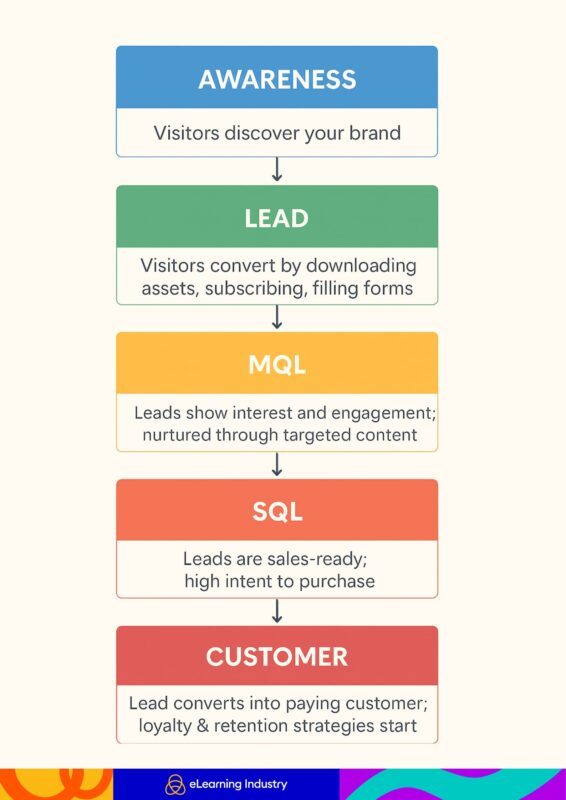How To Create A Strategic Marketing Plan For The Upcoming Year
You survived another year in a highly competitive and seriously congested market where new businesses appear and try to get their slice of the pie. Whether you failed, succeeded, or stagnated, creating a new marketing plan template is a good idea to gather your thoughts and arrange your new strategies. Within one year, many things change as new trends emerge and consumer behavior dictates new opportunities. Not only that, but the top applications of artificial intelligence push you to adopt as many of them as possible to stay competitive. Have you implemented any AI tools into your current tech stack? If not, this is one addition to your strategic marketing plan.
While it's easy to get carried away by trends and competitive tactics, you still have to stay true to what you believe. Take a look at your audience. What do they like, and which promotions are successful with them? For example, content like articles and webinars may still be their preferred media. So, stick to your guns and elevate your user experience even more. Maybe you'll also need to create a market intelligence report to understand how your competitors stay ahead of you.
Are you ready to create a new marketing plan and boost your business's success? Keep reading to discover how you can create a compelling guide for your team members to thrive and reach their goals.
In this guide, you will find...
- Step-by-Step Checklist To Create An Effective Marketing Plan Template
- Steps To A Strategic Marketing Plan
- Which Questions Should You Ask Yourself When Building A Strategic Marketing Plan?
Step-by-Step Checklist To Create An Effective Marketing Plan Template
1. Review Past Performance
- Track ROI and KPIs per channel
- Evaluate MQLs and SQLs conversion rates
2. Define Growth Goals
- Set short-term (6-month) and long-term (yearly) targets
3. Analyze Audience Behavior
- Identify preferred content formats (webinars, articles, videos)
- Determine engagement patterns
4. Assess Marketing Channels
- PPC campaigns (LinkedIn, Google, Facebook)
- SEO & content marketing
- Email marketing campaigns
5. Evaluate Competition
- Conduct SEO and PPC competitor analysis
- SWOT analysis
- Benchmark emerging competitors
6. Integrate AI Tools
- Lead scoring, personalization, automation
7. Allocate Resources
- Time vs budget per channel
- Internal team vs external support
8. Set KPIs & Reporting Cadence
- Weekly monitoring of leads, conversions, and ROI
- Quarterly reviews for strategy refinement
Steps To A Strategic Marketing Plan
When developing your marketing strategy, it’s essential to understand how your efforts will support sales and drive revenue. Marketing doesn’t just educate your target market about their pain points. It also builds relationships with your audience. Strong relationships ensure your sales team receives high-quality, “ready-to-buy” leads. The key is focusing on the buyer journey: guiding prospects from awareness → consideration → decision. Every marketing action should aim to move leads smoothly through these stages.
Turning Visitors Into Leads And Customers
-
Attract Prospects To Your Website
Your website is the hub for your marketing efforts. Make it easy for visitors to find valuable information.
-
Convert Visitors Into Leads
Encourage downloads, form submissions, and newsletter sign-ups to capture lead information.
-
Nurture And Qualify Leads
Regularly check your lead database, provide relevant content, and engage prospects. This is how you identify Marketing Qualified Leads (MQLs) and Sales Qualified Leads (SQLs).
-
Turn Leads Into Customers
Focus on solving your leads’ problems at the right time with useful tips and solutions, as your product or service becomes the natural answer.
Reviewing Past Performance
Strategic marketing leaders must analyze last year’s marketing efforts carefully:
- Break down expenses by channel: Consider both time and money spent.
- Measure ROI: Identify which activities delivered the best returns.
- Assess efficiency: For example, you may find your internal team is spending too many hours without producing desired results.
- Tracking time and reviewing KPIs is critical to understanding what works and optimizing your strategy moving forward.
Which Questions Should You Ask Yourself When Building A Strategic Marketing Plan?
The most important question to ask is if your company did grow during the past year. So, do you have an answer to this crucial metric? If yes, would you be satisfied with similar growth for the upcoming year? In case you need better results to help your business scale, you have to figure out the best marketing strategy to get there.
Next in line, you must understand which marketing channels drove the most value for your business during the last year. Don't forget to break down the value of each marketing channel into two categories: marketing qualified leads (MQLs) and sales qualified leads (SQLs). You need both channels to be effective for long-term growth. For example, efforts on SQLs (sales-centric blog content, Google Ads, etc.) are great for short-term sales. On the other hand, MQL efforts (educational blog content, speaking engagements, etc.) are essential to fill your pipeline. Also, they can drive long-term growth as they can be converted to SQLs later on.
Do you need to see a 7% growth every six months to keep your business going? Does your team understand what exponential growth is? For example, pay-per-click, or PPC, advertising (LinkedIn Ads, Google Ads, Facebook Ads, PPC Directories, etc.) is a good investment when you're thinking short-term. If you're looking for long-term results, search engine optimization (SEO) and content marketing tactics will help you to see much lower CPAs and exponential growth.
Also, you have to evaluate your competition and check each competitor's evolution. An SEO competition analysis can also help with that—if you're up for the challenge! What's more, running a SWOT analysis can help you see how you stack up against the newly updated competitive landscape. For example, there might be a small competitor growing at an alarming rate.
What's Next?
Make sure to investigate which types of digital marketing strategies your competition has tried. Do they get more traction in their organic search rankings? What about link building? One thing is certain: a company investing in SEO and PPC can expect increasing ROI for a win-win approach. Don't let your business stay behind. Look for opportunities to scale your organization!
Of course, you should focus on your marketing efforts. And, don't be afraid to be a strict judge. Did you manage to convert MQLs to SQLs with your email marketing campaigns? Was your content marketing strategy effective in driving MQLs? That's when you'll know a strategic marketing strategy is in order. And, there's a high probability that you'll need external help to deliver more than expected in the upcoming year.
Here are some proven digital marketing strategies and tips you might like to explore for your 2025 strategic marketing plan:
-
- Business Growth Strategies For eLearning Companies
- Market Intelligence Report: Unlock Critical Insights To Stay Ahead Of Your Competitors
- 12 Top Applications Of Artificial Intelligence In Business To Transform Your Tech Company
- Content Marketing Mistakes To Avoid
- Tips On How To Get Backlinks
- CSR Marketing Opportunities
We know that every eLearning business is unique. Plus, there are far too many variables to consider. So, if you'd like some extra advice on which marketing strategies would work best for you, let's schedule a consultation call if that's what you're looking for.
If you want to receive even more marketing and sales tips, join our email list and stay updated whenever, wherever!
Creating a yearly marketing plan helps you review past performance, adapt to emerging trends, implement new tools like AI, and align your strategies with evolving audience behavior and business goals.
Attract visitors with valuable content, encourage downloads and form submissions, nurture leads with relevant communication, and identify MQLs and SQLs through engagement and readiness to buy.
Reviewing ROI, KPIs, and channel efficiency allows you to see which efforts produced results, optimize resource allocation, and avoid spending excessive time or budget on underperforming tactics.
Assess each channel by its ability to generate MQLs and SQLs, compare short-term vs. long-term effectiveness (e.g., PPC for immediate results, SEO for sustained growth), and adjust investment accordingly.
Understanding competitors’ strategies through SEO/PPC analysis, SWOT evaluations, and market intelligence reports helps identify gaps, benchmark performance, and uncover opportunities to outperform rivals.


